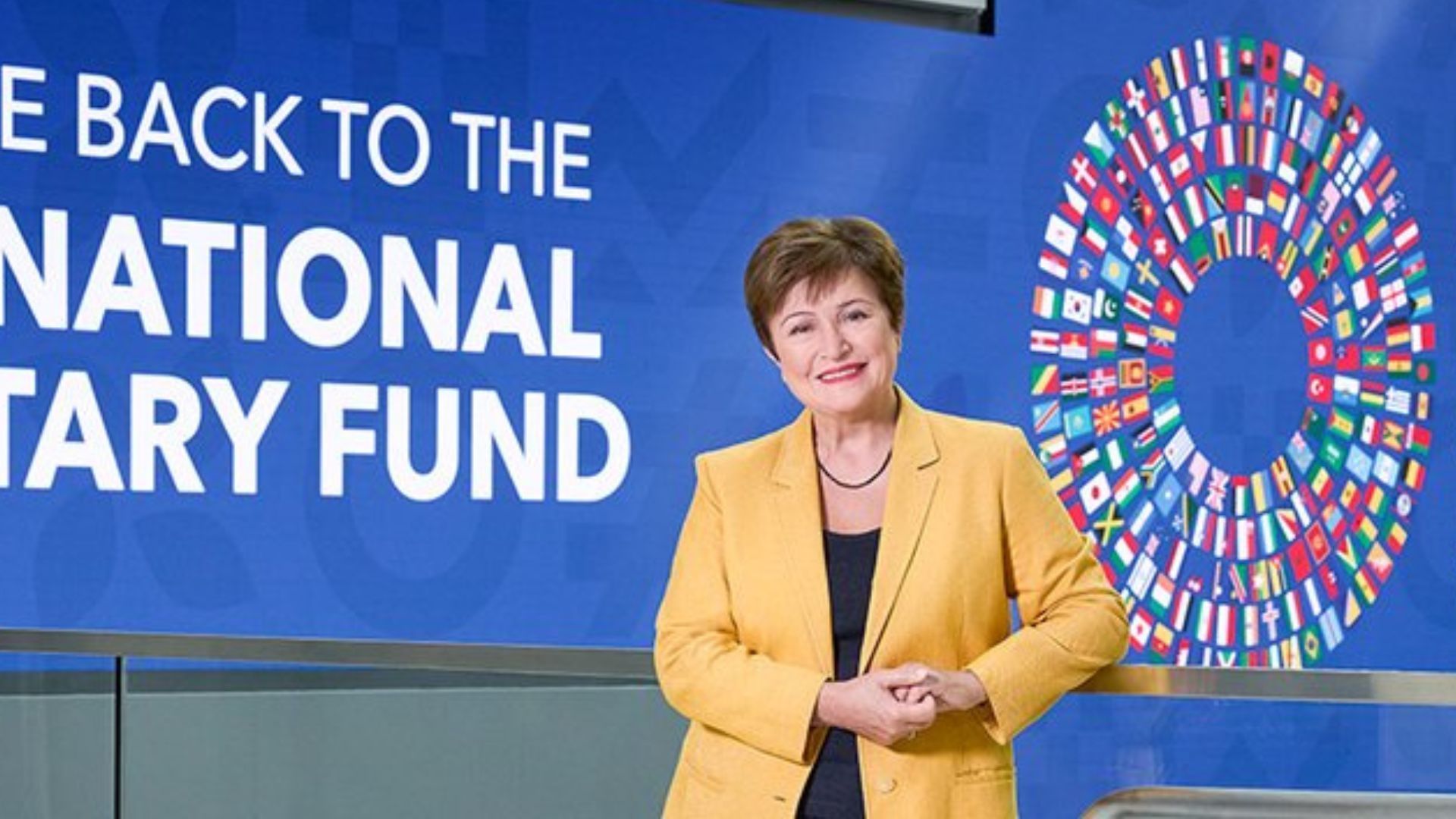The global economy is moving from a world of relative predictability to one of greater uncertainty, according to IMF’s Managing Director Kristalina Georgieva, who warns that nations accounting for about one-third of the global economy will face at least two consecutive quarters of decline this or next year.
Also Read| Varroc Engineering falls 9% after firm sells lighting biz at reduced price
In a significant policy address ahead of the annual meeting of the International Monetary Fund (IMF) and the World Bank, IMF Managing Director Georgieva indicated on Thursday that the World Economic Outlook, which will be published next week, will lower global growth predictions even further.
“We have downgraded our growth projections three times already, to only 3.2% for 2022 and 2.9% for 2023. And as you will see in our updated World Economic Outlook next week, we will downgrade growth for next year,” she said.
Also Read| Once upon a time: Rupee’s journey from 4 to 82 a dollar
“We will flag that the risks of recession are rising. We estimate that countries accounting for about one-third of the world economy will experience at least two consecutive quarters of contraction this or next year. And, even when growth is positive, it will feel like a recession because of shrinking real incomes and rising prices,” she further said.
Also Read| World Bank cuts India’s GDP growth forecast by 100 basis points
“Overall, we expect a global output loss of about USD 4 trillion between now and 2026. This is the size of the German economy — a massive setback for the world economy. And it is more likely to get worse than to get better,” she added.
Observing that uncertainty remains extremely high in the context of war and pandemic, she said there could be even more economic shocks.
Also Read| US weekly jobless claims rose more than expected
“Financial stability risks are growing: rapid and disorderly repricing of assets could be amplified by pre-existing vulnerabilities, including high sovereign debt and concerns over liquidity in key segments of the financial market,” she said.
“We are experiencing a fundamental shift in the global economy: From a world of relative predictability — with a rules-based framework for international economic cooperation, low-interest rates, and low inflation… to a world with more fragility — greater uncertainty, higher economic volatility, geopolitical confrontations, and more frequent and devastating natural disasters — a world in which any country can be thrown off course more easily and more often,” Georgieva said.
Also Read| Apple in talks to make AirPods, Beats in India: All you need to know
Up to 90 central banks have raised interest rates in 2022, restricting the global money supply to combat the soaring inflation caused by the Covid19 pandemic and the Russia–Ukraine war.







